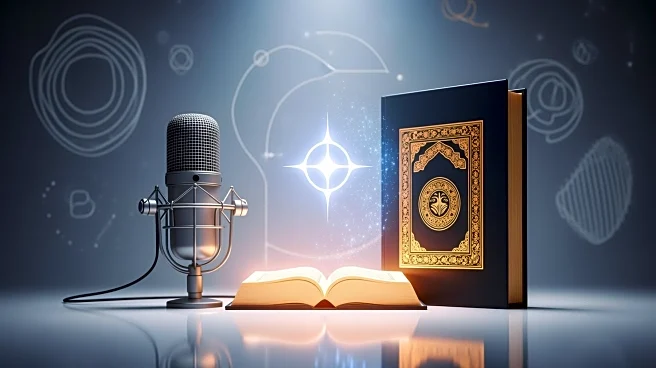What's Happening?
The AAR/SBL 2025 conference is hosting a series of panels and workshops that delve into the intersection of religion, media, and academic freedom. Highlights include discussions on the role of comics and graphic
novels in religious studies, the impact of media on religious communities, and the challenges faced by scholars in maintaining academic freedom amidst political pressures. The conference features a diverse range of topics, from the examination of difficult biblical texts to the exploration of compassion in Dharma traditions. Notable sessions include a roundtable on Palestinian Christian theologies and a performance by Theater of War, which interprets war veterans' experiences through ancient poetry.
Why It's Important?
The conference addresses critical issues in the academic study of religion, highlighting the importance of media as a tool for resistance and engagement in religious communities. It also underscores the challenges faced by scholars in preserving academic freedom in a politically charged environment. By bringing together experts from various fields, the event fosters dialogue on how religious scholarship can adapt to contemporary societal changes and contribute to social justice. The discussions on topics like Palestinian Christian theologies and the ethics of vigilance in U.S. politics are particularly relevant given current global and domestic tensions.
What's Next?
The conference is expected to influence future academic research and teaching methodologies by integrating media and technology into religious studies. The insights gained from the panels may lead to new collaborations and initiatives aimed at promoting social justice and academic freedom. Participants are likely to continue exploring these themes in their respective fields, potentially leading to publications and projects that address the intersection of religion, media, and societal issues.
Beyond the Headlines
The conference's focus on media and religion highlights the evolving role of digital platforms in shaping religious discourse and activism. The discussions may prompt further exploration of how religious communities can leverage media to address injustices and promote inclusivity. Additionally, the emphasis on academic freedom raises questions about the ethical responsibilities of scholars in navigating political pressures while maintaining intellectual integrity.








